Have you passed the very first test on the road to an authentic, empowered life?
Psyche's gift to overthinkers: Five ways to know the difference between gut instinct and fear
You can listen to this post on TikTok, YouTube or Instagram.
***
This is how to develop the first and, arguably, most important psychological skill required for a life of powerful authenticity, self-knowledge and command.
In my last post, I discussed the myth of Psyche and Eros and how it can be read as a call to awaken the inner protector – the sometimes well-hidden part of the personality that can fight for us to get our needs met, boundaries held and desires realised.
The myth of Psyche and Eros – a summary
In super-short, Psyche, a mortal woman, found herself abducted by the god of love, Eros, who had accidentally fallen for her. Hidden away in a magical palace, Eros visited Psyche nightly and their relationship blossomed without her ever knowing who he was or seeing his true face. But after a time, her curiosity got the better of her and she lit a lantern as he slept in order to reveal his identity. Psyche woke Eros up in the process, however, and, furious that she'd disobeyed his orders to never try and find out who he was, Eros abandoned Psyche to her grief and despair.
Some time after this, Psyche was abducted by the vengeful goddess Aphrodite (Eros's mother), and was set a series of four seemingly impossible tasks in order to regain her freedom. Against all odds, Psyche succeeded in each and was rewarded, ultimately, by being made into a goddess herself and living for eternity with her love Eros up on Mount Olympus.
I'm telling this story because, in terms of archetypal symbolism, it can be understood as a tale of personal growth and psychological individuation. Psyche's journey, with all its challenges, perfectly represents a process we must each undertake in our own ways in order to break free of the rules and beliefs of our upbringing, along with societal expectations and other types of conditioning. In other words, this is the journey we take in order to become who we truly, actually are as individuals.
I related the myth in full in the last post, but I didn't talk much about Psyche's trials, which can be understood as a kind of map through four deepening stages of individuation. And because their symbolism is so rich, powerful and, in my opinion, fascinating, I'm dedicating one post to each task for the remainder of this series. Today, we're going to explore Psyche’s first trial, along with how we can recreate it for ourselves. Here's how it plays out.
The first trial of Psyche: Sorting the seeds
While banged up in Aphrodite's dungeon, Psyche is ordered to sort a huge heap of seeds – chickpeas, wheat, corn, millet, etc. – into their separate piles. She's given until nightfall to complete this task, which would be impossible on her own, but after almost drowning an ant in her big sploshy tears, Psyche is helped by an army of ten thousand benevolent little ants and therefore nails it, much to the disgust of Aphrodite, who, of course, wants her to fail.
So, what's this all about?
In her book Shadow and Evil in fairytales, Marie-Louise von Franz – a Jungian analyst who spent her career analysing fairy tales for archetypal and therapeutic significance – has a beautiful thing to say about this motif. She admits that when she began her work, she hoped to find some kind of universal human code that held true across all the stories – a list of dos and don'ts for love, life and morality. Frustratingly, she found this not to be the case: some stories reward honesty, while others talk about characters who succeed through clever trickery; some stories say you must never retaliate when persecuted, others tell you not to be a fool and hit back. So it turned out there were no rules… except for one thing: across all the fairytales, from every culture she researched, von Franz found that you must always listen to the kindly animals. If you accept their help, you'll succeed. If you go against them, you're done for.
Her interpretation of this is that kindly animals and other natural elements in fairy tales represent human instinct and intuition. Trusting the cute critters, therefore, represents the importance of self-trust, listening to one's emotions and tuning into a bigger, deeper bodily knowing, as opposed to spiralling into fruitless rationalisation and intellectualisation.
What does one feed intuition so that it is consistently nourished and responsive to our requests to scan our environs? One feeds it life – one feeds it life by listening to it. What good is a voice without an ear to receive it? What good is a woman in the wilds of megatropolis or daily life unless she can hear and depend upon the voice of La Que Sabe, The One Who Knows?
I've heard women say it, if not a hundred times, then a thousand times: "I knew I should have listened to my intuition. I sensed that I should/should not have done such and such, but I didn't listen." We feed the deep intuitive self by listening to it and acting upon its advice. It is a personage in its own right, a magical dollish-sized being which inhabits the psychic land of the interior woman.
– Clarissa Pinkola Estés, Women Who Run With the Wolves
So, rather than Psyche being helpless and happening on the luck of her ant-friends, what that part of the story could actually be conveying is that Psyche's success in the first task comes about as a result of her connecting with her authentic intuition, probably for the very first time.
That would make sense because the trial itself is said to represent the skill of discernment when it comes to the inner world. Sorting the seeds symbolises the necessity to organise and differentiate the chaotic elements of the psyche. It's about being able to sort the conscious from the unconscious, to differentiate between gut instinct and fear, true needs or values and conditioned ideas, all of which leads to greater self-awareness, understanding, an authentic sense of identity and personal power.
How to develop the skill of discernment
Great. So, how might we go about this in real life? How can we learn to sort the inherited, conditioned content of the unconscious mind from the stuff that truly belongs to us?
Telling the difference between gut instinct and urges based on conditioned ideas can be tough because both can feel compelling and immediate. There are, however, differences in how these messages manifest and resonate. The skill of discernment requires that we learn to tune into these differences – over time, as it's not going to be quick – so we can tell one from the other.
To get you started, here are five key differences to be looking out for.
Note that most – but not all – of these points focus on the experience of emotion, so if you're alexithymic, please bear with me. There should be at least one point of difference that feels accessible to you. That said, of course this is a bigger challenge for anyone who struggles to feel their feelings. Trust me, I know. I've been there.
Emotional Quality
On that note, difference number one is in emotional quality. Gut instinct tends to feel clear, calm and straightforward, even when it's urging you to do something really challenging or even frightening.
Messages and urges based on conditioned ideas, however, often come with strong emotions like anxiety, guilt or fear. They might feel urgent or pressured, and they might bring with them an awareness of how you think you appear to others or what other people want from you. That last part is key and relevant for people who really struggle with interoception, too. If your gut instinct feels connected to what other people want, then it's probably not your gut instinct.
Physical Sensation
Difference number two is in physical sensation. Gut Instinct often manifests as an experience in your body – such as a feeling in your stomach, a lightness in your chest, or sometimes a kind of release like the one you get when you finally remember a name you've been racking your brains to come up with. These sensations are usually brief but distinct and they resonate deeply. It's like something inside says "ah, that's it." Again, this is the case even when the conclusion you've arrived at is one you'd rather not have.
Messages and urges based on conditioned Ideas, however, are more likely to be accompanied by tension in the body, such as tightness in the chest, a knot in the stomach, or shallow breathing. This tension might be associated with thoughts of "I should" or "I must" do something or other. Again, that last point is key. "Should", "oughts" and "musts" are most often handed down as opposed to felt authentically. True desire is more likely to feel like "I need", "I want" or "I will."
Permanence and Persistence
Difference number three involves duration. Gut Instinct can be clear but it's usually fleeting. It may give you a strong sense of direction in the moment, and it may well recur if you're not listening, but it's unlikely to persistently nag or overwhelm you, which is one of the reasons it's so easy to let it slip by.
Conditioned ideas, on the other hand, are more likely to persist in the forms of worry, rumination, obsessive thinking and long rambling conversations in your head.
Impact on Your Sense of Self
Difference number four: impact on your sense of self. A gut Instinct, pretty much by definition, will align with your core values and true self. Following your gut instinct, therefore, generally leads to a sense of peace, alignment, and authenticity – again, even if the action you take is difficult.
Conditioned ideas, conversely, can make you feel out of sync with yourself, as if you’re acting out of obligation or expectation rather than genuine desire, which may in turn bring feelings of resentment or stress.
Internal Dialogue
And, finally, difference number five is about internal dialogue. We've touched on this a bit already, but it deserves its own category.
Gut Instinct tends to be direct and concise. If it were to speak (which it usually doesn't, by the way, although we can translate it into language), gut instinct would use only a few words to convey a message – it would say something like "don't do that" or "this feels right."
So, if you're engaged in a lot of complex internal debate, filled with justifications and what ifs, then you're more likely to be dealing with your conditioning than an authentic unconscious knowing.
Awakening authenticity
If you're anything like I was when I first had to start on this work for myself, you may have listened to those points, and recognised all the conditioning examples, but felt the gut instinct experiences sounded like the contents of a fantasy young-adult novel.
If this stuff feels completely alien to you, please don't worry. You are definitely not alone. The first time I can remember being aware of a gut instinct as it happened was in my mid-thirties, I think, and it came about as a result of much stillness and reflection – two things that I've always found pretty damn hard.
If you want to start the work of building the skill of discernment, I recommend you begin with the small stuff. Big, important decisions are always going to be hard, so they're not the place to cut your teeth.
The five categories of difference
1. Emotional quality (calm/stable or anxious?)
2. Physical sensation (releasing or tense?)
3. Duration (fleeting or persistent?)
4. Impact on your sense of self (aligned or misaligned?)
5. Internal dialogue (direct or convoluted?)
Instead, begin with lower-risk stuff. For example, you could go through your wardrobe and see how each item of clothing feels. Do you own each piece because you, authentically, love it, or is it there because you were following a trend or dressing for work? I think we all have an item in each of those categories.
Grab them and see if you can notice a difference in the experience of the two pieces: consider how they feel emotionally or physically; whether they align or not with your sense of self; and the kind of inner dialogue they each inspire. In other words, how do you experience the difference between the two?
Note: I'm not necessarily telling you to get rid of the clothes with awkward vibes. If you need them for work, then you need them for work. Fine. This is just an exercise.
The skill of inner discernment is a mature thing, and it takes its sweet time to build. So, there's no need to rush this, and it's okay if you feel like success is a long way off. The most important thing in this pursuit is to get curious about it all.
Get in the habit of asking yourself:
"Do I really want/think/need this thing, or is this idea coming from somewhere else?"
Regardless of how gut instinct presents itself for you, the more you ask that question, the easier it'll be to know the answer.
Thank you for reading!
We’re Hazel (ex boxer, therapist and author) and Ellie (ex psychology science writer). We left our jobs to build an interactive narrative app for self-awareness and emotion regulation (Betwixt), which you can try on Android here and on iOS here.



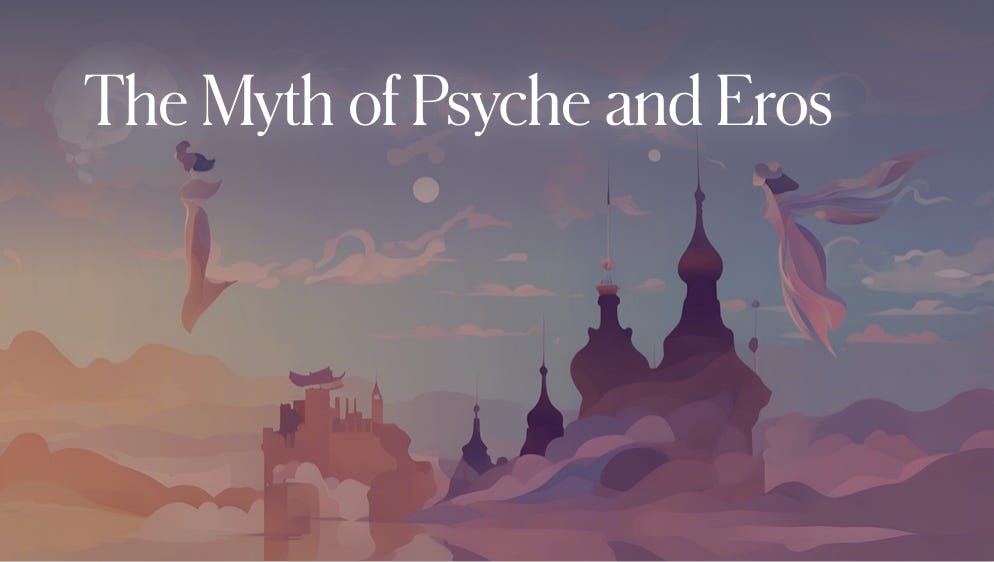
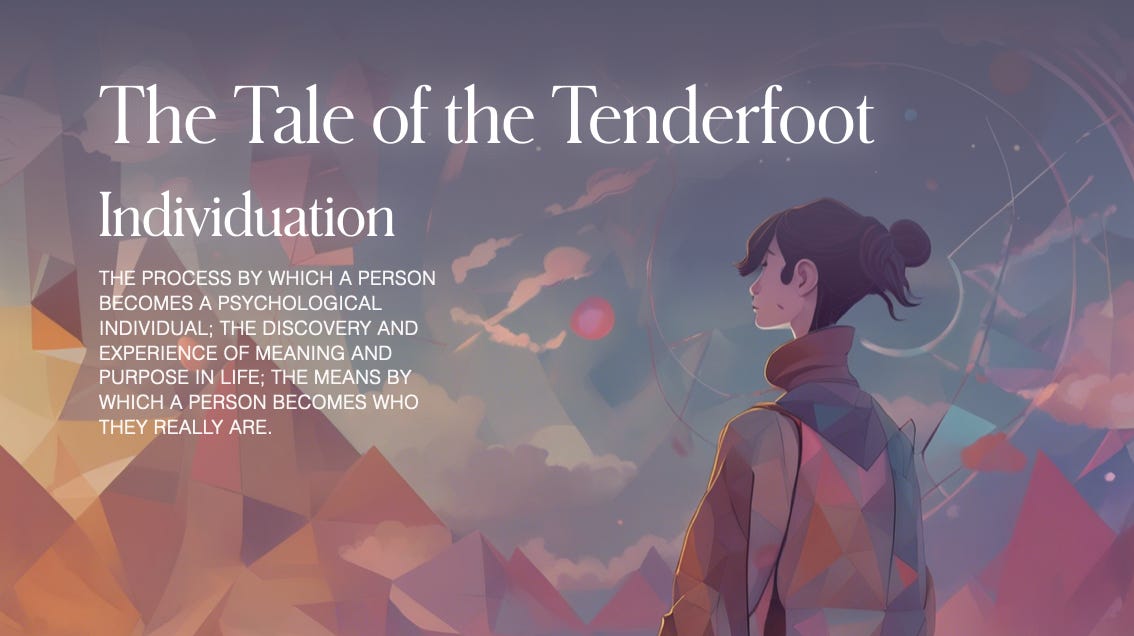
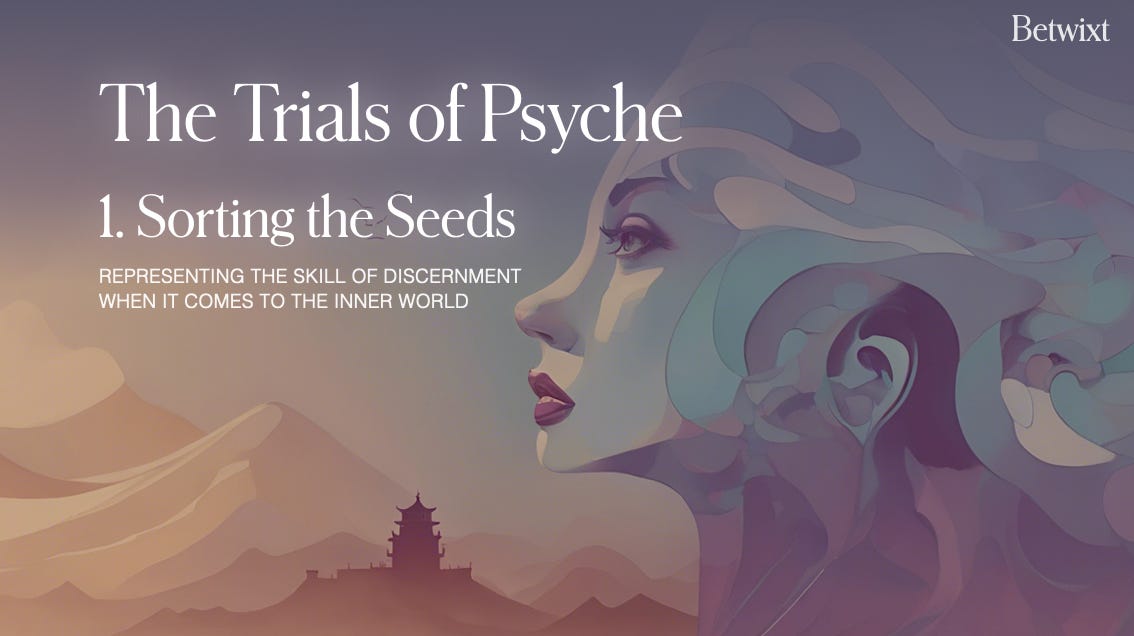
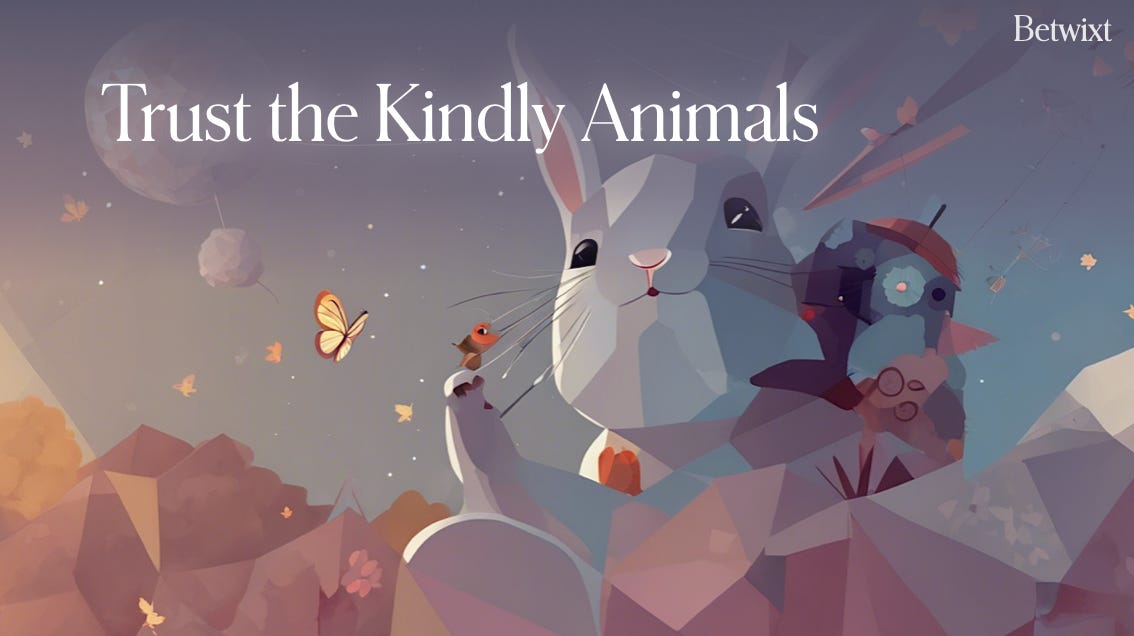
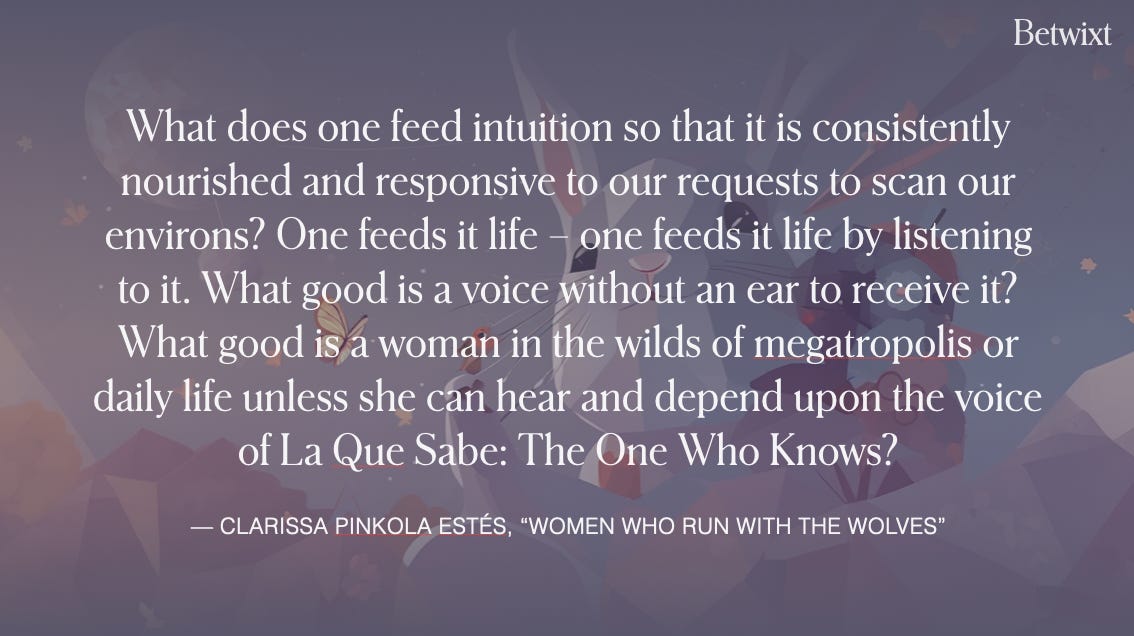
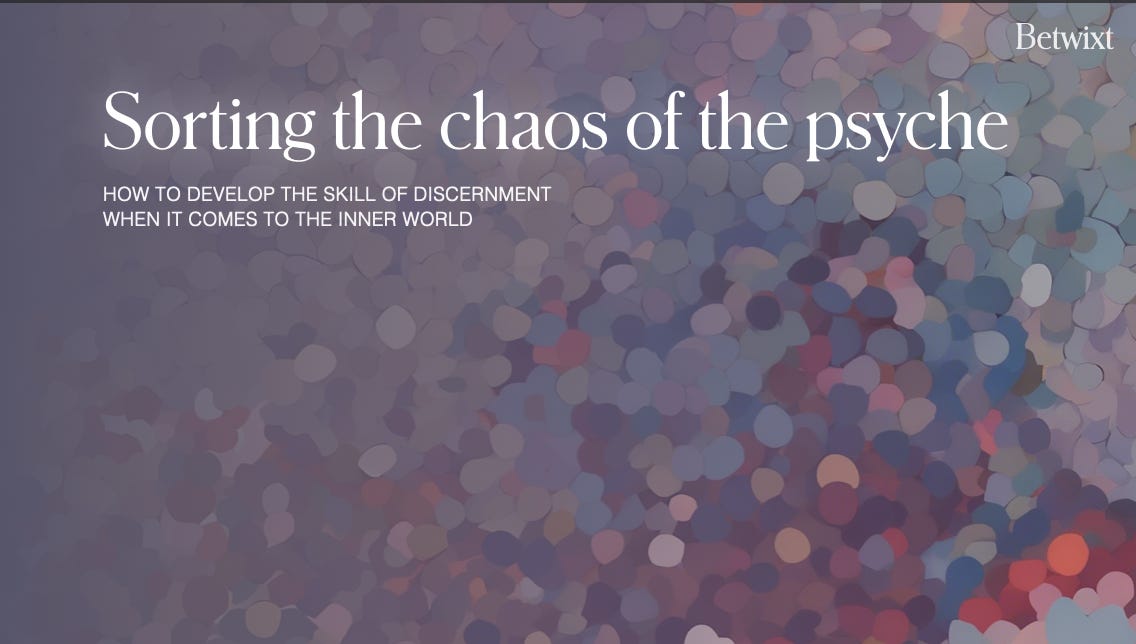
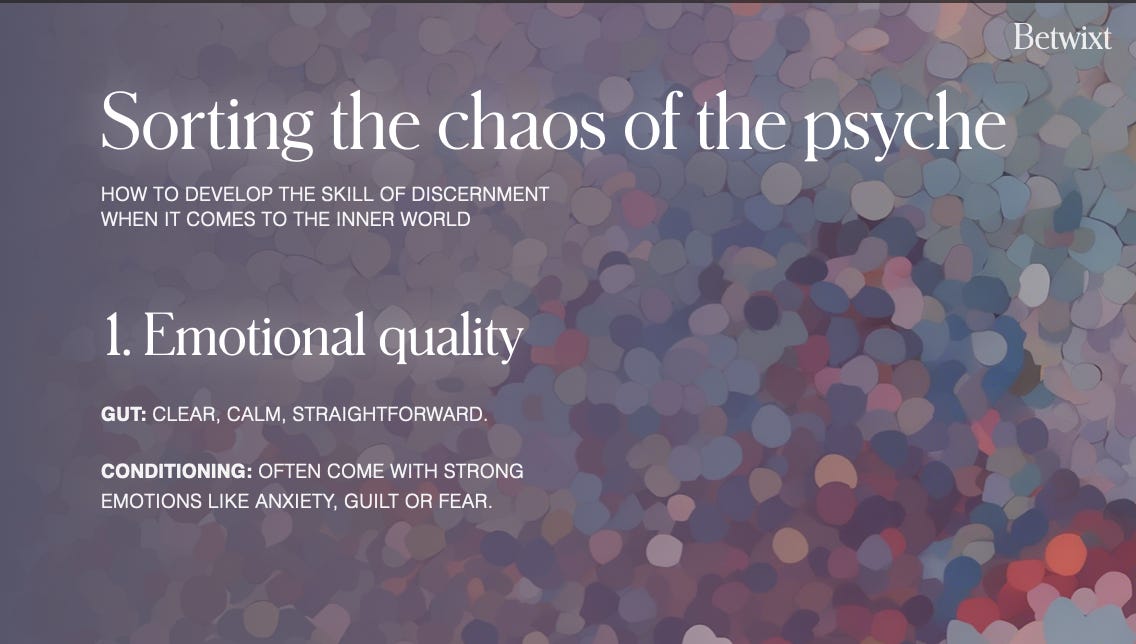
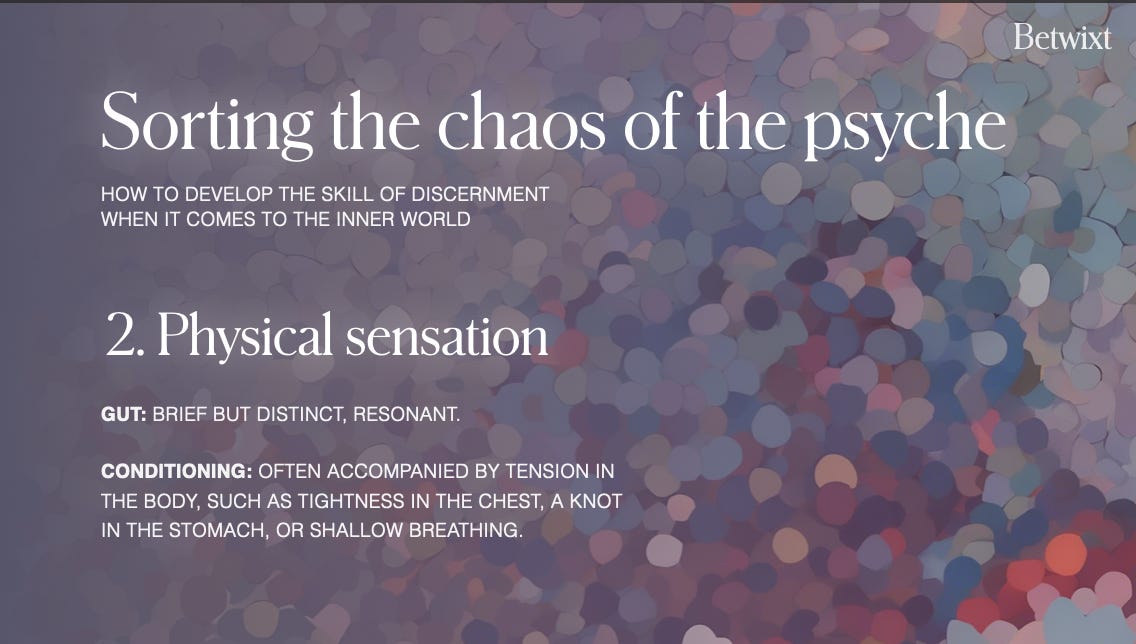
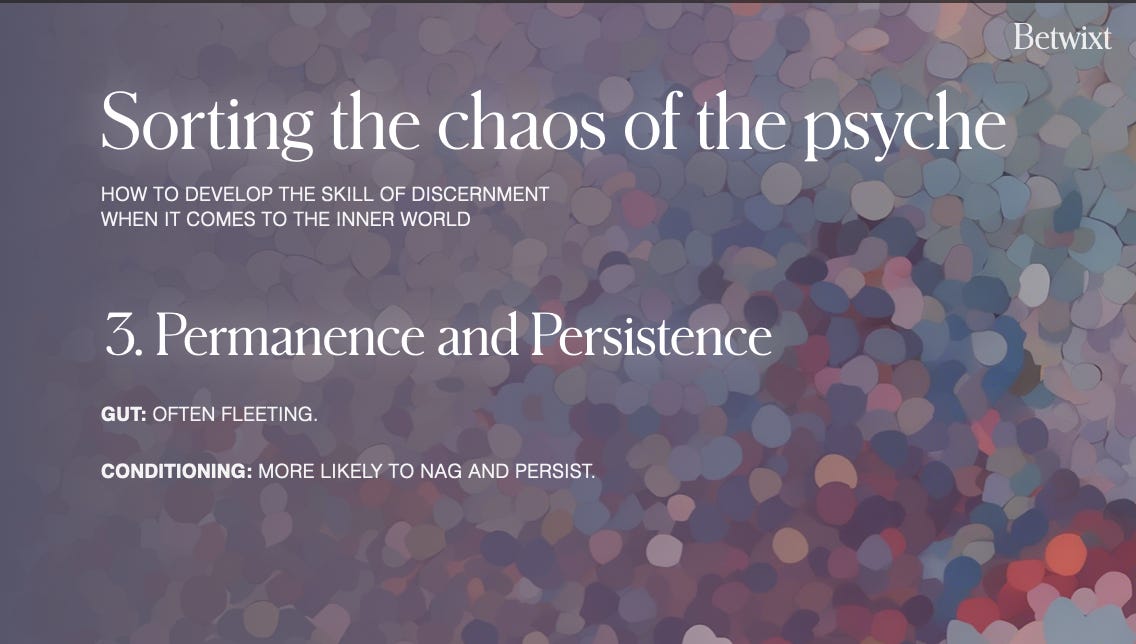
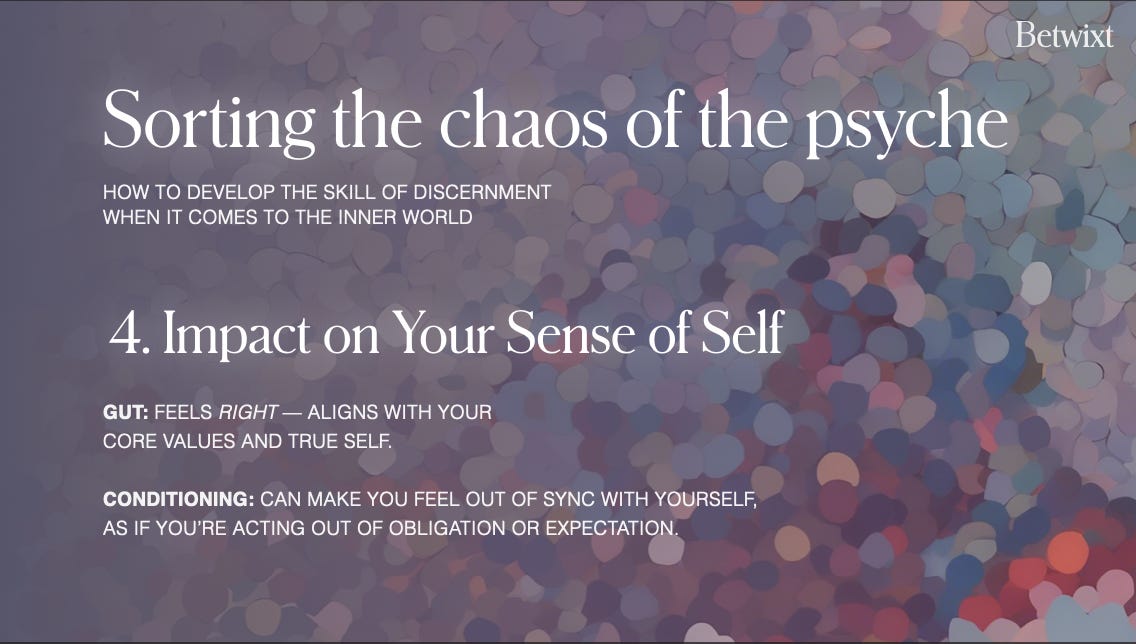
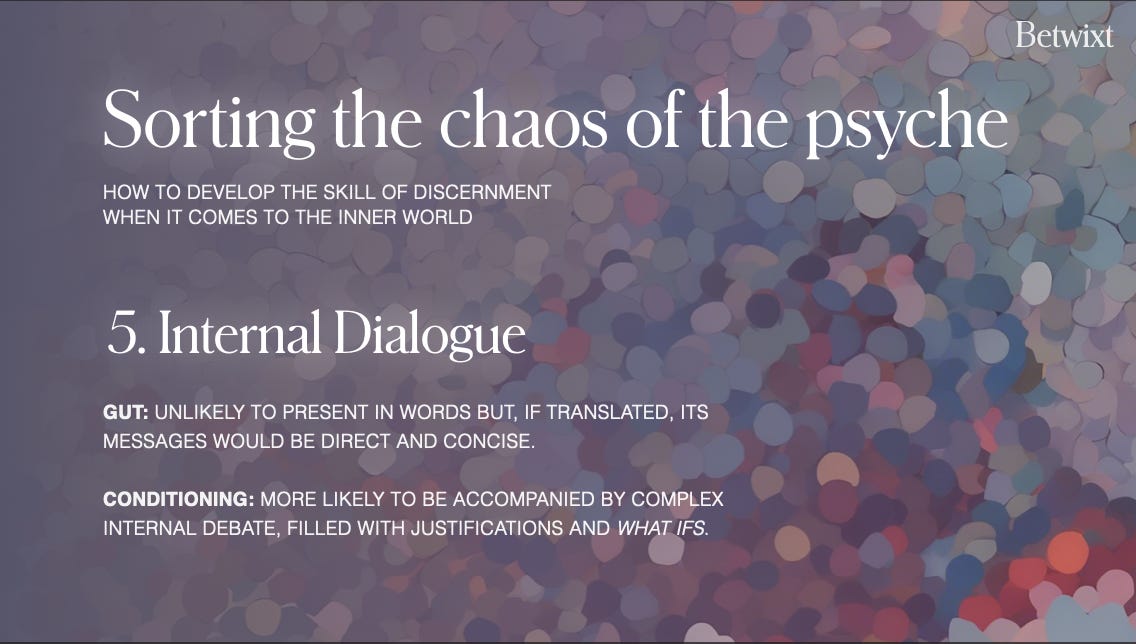
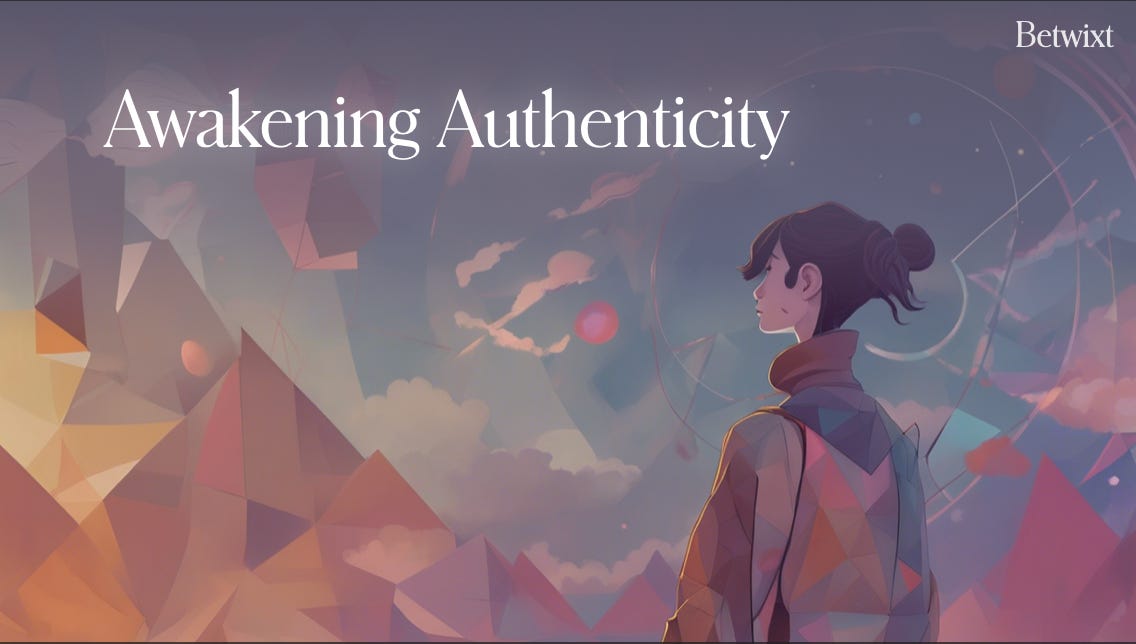
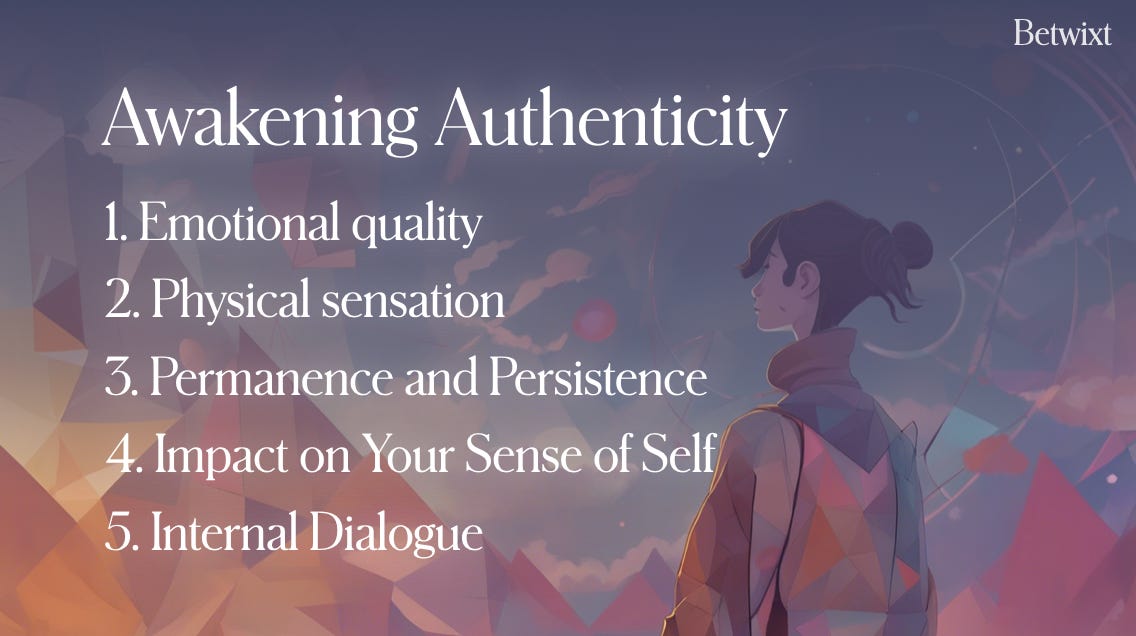
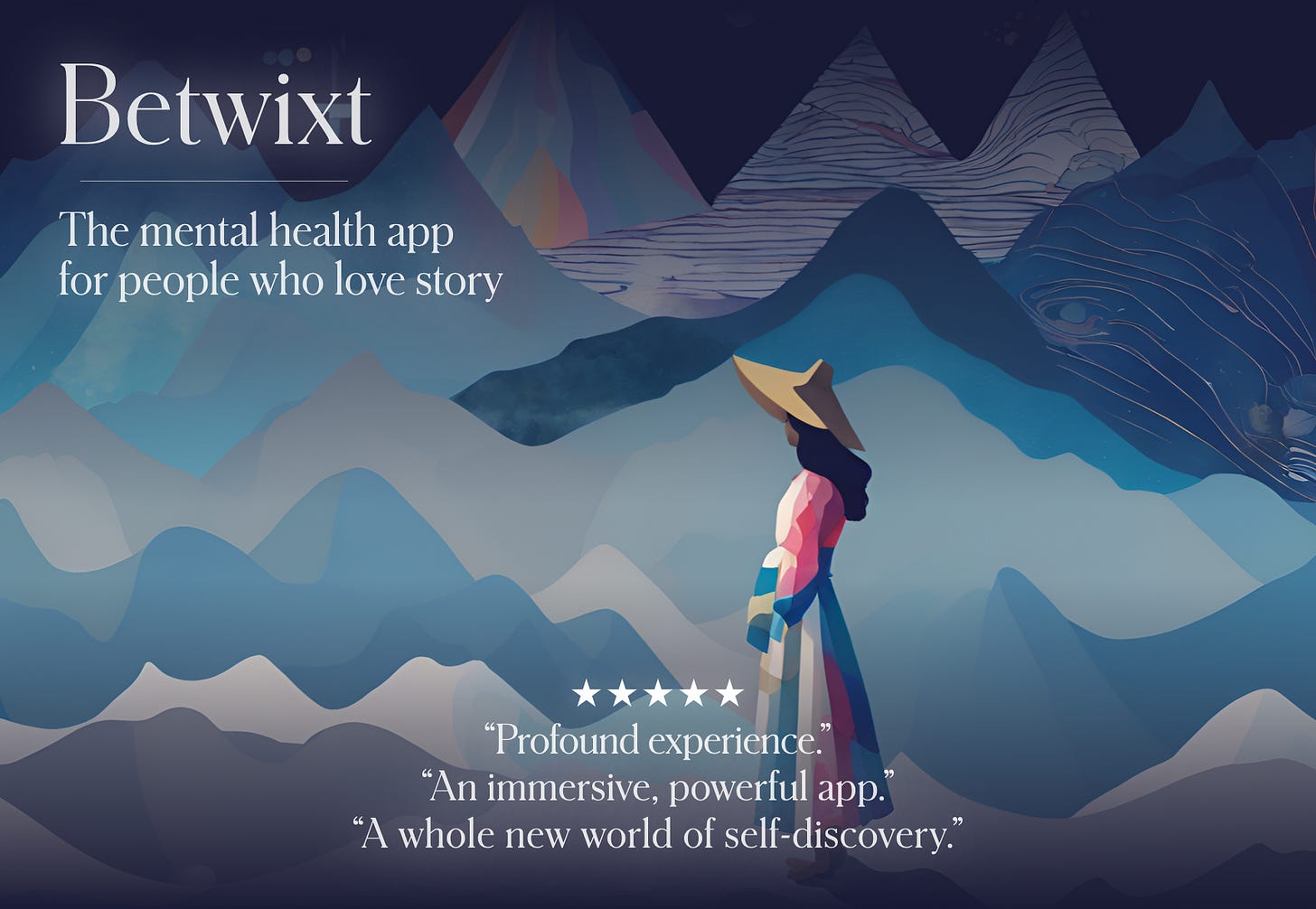
"...there were no rules… except for one thing: across all the fairytales, from every culture she researched, von Franz found that you must always listen to the kindly animals. If you accept their help, you'll succeed. If you go against them, you're done for." This is stellar. Love it.
I really like how you present discernment in figuring out if it’s a gut feeling or conditioning beliefs.
For myself and my clients I like to lay out this “gut feelings and intuition are feelings but they are not attached to an emotion or story. They just are. The emotions or story we create around these feelings comes from our story mind. When we detach our emotions we can see things more clearly.”